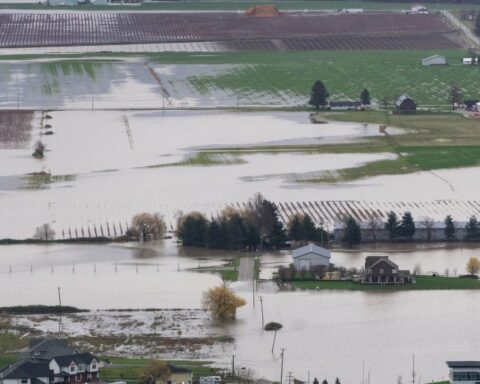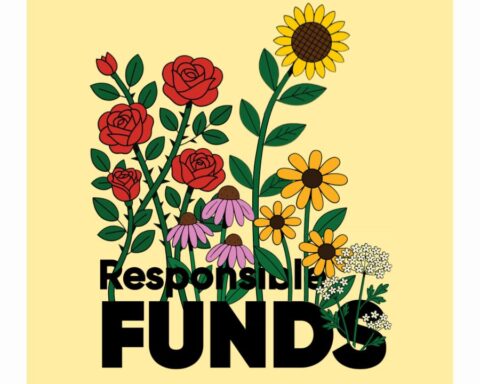Earlier this week, Toronto residents experienced massive flooding that submerged cars, damaged basements and left the city with a taste of climate chaos. Even Drake wasn’t spared – his Toronto mansion was hit by the floods. Extreme weather events, such as Tuesday’s record-breaking rainfall, are becoming increasingly common, and the science is clear on why.
As temperatures rise, so do the intensity and the frequency of floods. In part this is because warmer temperatures lead to increased evaporation, which means more moisture in the atmosphere and, consequently, heavier rainfall. This pattern is evident in Toronto’s recent deluge, compounded by too much impermeable concrete and inadequate storm infrastructure, echoing a broader trend seen across Canada and the world.
Flooding has caused the highest insured losses in Canada over the past few years. Last summer, flash floods in Ontario caused more than $340 million in insured losses. Tuesday’s flood is expected to surpass $1 billion in insured losses. The Canadian Climate Institute projects that flood damage to homes and buildings could increase fivefold in the next few decades.
While severe weather escalates, the insurance industry continues to foster those very risks by underwriting and investing in fossil fuels. The seven biggest property and casualty insurers in Canada invested more than $19.5 billion in fossil fuel assets in 2023. By supporting fossil fuel expansion, insurance companies are, in essence, underwriting the climate disasters themselves – including Toronto flooding.
In response to rising claims, insurers are hiking premiums and cutting back on coverage. Many homeowners find themselves without sufficient protection, having to face the costs out of pocket or resorting to crowdfunding. More than 1.5 million Canadian households now lack affordable flood coverage, and an estimated 6 to 10% of Canadian homes are currently uninsurable against flooding. Twenty percent of Canadians are exposed to some degree of flooding, and 94% of people living in high-risk flood areas are unaware of that risk.
In February 2024, Desjardins pulled its coverage for mortgages on homes with a 5% chance or more of flooding each year, affecting more than 3,000 homes in just one borough of Quebec. Desjardins was the last major lender to offer mortgages in higher-risk flood zones. Some homeowners in Ottawa also can’t get flood insurance if they are situated close to the Ottawa River.
Meanwhile in B.C., just under half of policyholders were covered for flood damage in 2021, while 5% of homeowners are at too great a risk to access flood insurance. One B.C family’s home collapsed into the Nicola River last November, and while they believed they were fully insured, their payout was only a fraction of the damage costs. Windsor residents are also unsure of their flood coverage; even some homeowners who spend tens of thousands on preventative flood measures cannot get full coverage.
There is an unspoken assumption within the insurance industry that it can indefinitely pass on cost increases to consumers. But there’s an inevitable breaking point when rising costs make insurance unaffordable for the average household. The lack of conversation around this issue allows insurers to continue this practice unchecked, placing an ever-increasing burden on consumers while undermining their own long-term viability.
Related:
- Canada’s life insurers have a fossil fuel problem
- Insurance giants exit net-zero pact
- Is the insurance industry walking away from fossil fuels?
It’s clear that the insurance industry needs to be cleaned up. Companies cannot perpetually pass risks and costs down to consumers and taxpayers while continuing to funnel billions of dollars into the industries driving climate catastrophes. Insurers should develop and publicize robust and credible transition plans outlining their path to net-zero. Regulators should step in to accelerate this and introduce penalties for misalignment.
The recent flooding in Toronto is a harbinger of future challenges. Without immediate action to address the root causes of climate change and reform industry practices, the cycle of destruction and financial loss will only intensify. The insurance sector in particular has a critical role to play in this transformation.
Kiera Taylor is a senior analyst at Investors for Paris Compliance.







